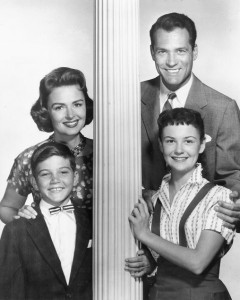Am I the only one feeling uneasy about the coverage of Pope Francis and the man with neurofibromatosis?
It’s not that I mind seeing the man, whose neck and head are covered with benign tumors resembling boils or giant scales. But I do wish I knew more about him — his name, his nationality, his employment history, how faith and doubt play out in his life, any detail that tends to mark him as an individual. Through no fault of his own, he comes off in its absence like a prop, a flat character in a story called How Francis Transformed the Papacy.
In the story, his purpose, his job, is to be merely pitiable — or worse. The Kindness Blog’s headline refers to him as “Horribly Disfigured Man”; to UCatholic, he’s “Severely Disfigured Man.” Vatican Insider’s copy is a little more delicate, bumping up his status to "man plagued with neurofibromatosis." But the line following the photo — "Pope Francis' humanity shone [sic] through once again as he kissed a man's disfigured face" — gives the game away. And it's the same old game. We're meant to understand that nobody but a saint would touch the guy with a ten-foot pole.
Not knowing fact one about this man, I won't try to guess at the quantity or quality of his close personal relationships. But, through slight experience, I can testify that people with neurofibromatosis are perfectly capable of recommending themselves. The son of a woman I know has the disease, and I got the chance to meet him once over coffee and pie. The boy was about 17 then, and very quiet. But he carried himself with an air that suggested intelligence and maturity. Unlike me at that age, he didn't look at all surly, by which I mean stoned out of his gourd.
His mother did most of the talking, and a great deal of it was about him — in particular, the difficulty, even at the Mayo Clinic, of finding a doctor who inspired confidence. All the while, I kept glancing at the boy, partly, yes, out of curiosity at the tumor that swelled one half his face to twice the size of the other. But mostly, I was trying to gain some sense of whether he minded being discussed like this in front of a stranger. To all appearances, he didn't. This was his life — no need to make any bones about it.
I also tried a few times to draw him out, but one introvert trying to chat up another is a spectacle more grotesque than any tumor. After he offered a few polite but terse responses, I took the hint. Deciding to let him be before my liberal do-gooder started showing, I came away admiring him in the way I admire anyone who makes me feel like a jerk.
Don’t get me wrong. Of course the pope’s gesture was lovely. And there’s no evidence whatsoever it failed to satisfy its recipient. If he didn’t want to be caressed or photographed, he wouldn’t have come all the way to Vatican City and gotten in line.
But I do wonder whether we’re taking the right lesson. Spiritual works of mercy, like comforting the afflicted, are great. But their motive is meant to be, in the words of the Catholic Encyclopedia, “the misery one discerns in another, especially in so far as this condition is deemed to be…involuntary.” If that were the last word on the afflicted, all we’d be capable of doing is condescending to them. Let’s also bear in mind that, despite their burdensome afflictions, they’re capable of earning great merit. That guy might well have had a hug coming.
For that matter, the afflicted are capable of racking up some pretty chilling demerits. Grady Stiles, whose ectrodactyly won him prominent billing at freak shows under the name Lobster Boy, earned his family’s hatred by being a brutal drunk and a controlling son of a bitch. Despite his disability, Stiles was pretty tough. (“He wasn’t a quadriplegic,” one of his children once told Details magazine. “He was a quadruped.”) He also proved a good shot, gunning down his daughter’s fiancé. Though convicted of third-degree murder, Stiles served no time, as the state had no prisons with facilities to accommodate him. Later, Stiles’ family had him killed.
The pathetic, the monstrous, the cloyingly plucky — it’s hard, in the popular imagination, for the disabled to escape any of these frames without landing in another. In his profile of the bearded Jane Barnell, who performed in sideshows as Lady Olga, Joseph Mitchell struggles to keep his subject out of all three. Mitchell tells us how Barnell had trained to be a nurse, how she was married to her third husband, how she despised former heavyweight champ Jack Johnson — by then reduced to sideshow performing himself — for wearing a beret and sipping beer through a straw. He also reminds us how staring depressed her and confirmed her in the belief that she had no real place in society. Then he leaves Barnell alone, in a pain we’ll never really fathom.
That acknowledgement is Mitchell’s real gift to Barnell. There’s a dignity in being unknowable, or rather, in being too complicated to admit of an easy pinning-down. “Do not understand me too quickly,” warned Gide. Those with special burdens that demand special strengths have every right to say the same.
So my whole premise could be faulty. Maybe it’s good we don’t know more about the huggee. Or rather, maybe it’s better we know next to nothing than too little. Indeed, he might prefer to remain anonymous. After all, nothing’s preventing him from presenting himself to the media and claiming his 15 minutes. That he hasn’t may prove he has a deep regard for his own privacy — these days, a quality that would really make him stand out.











